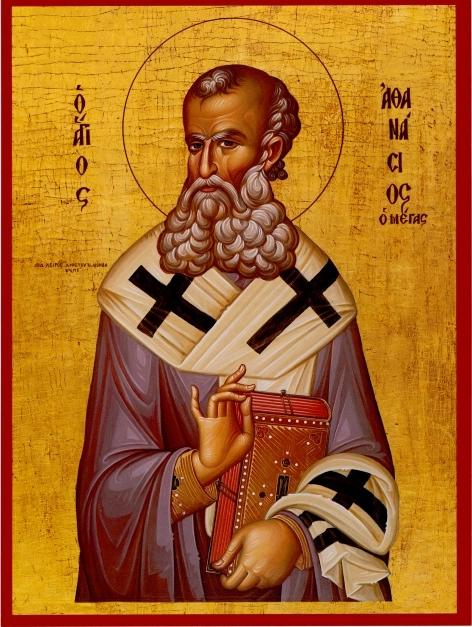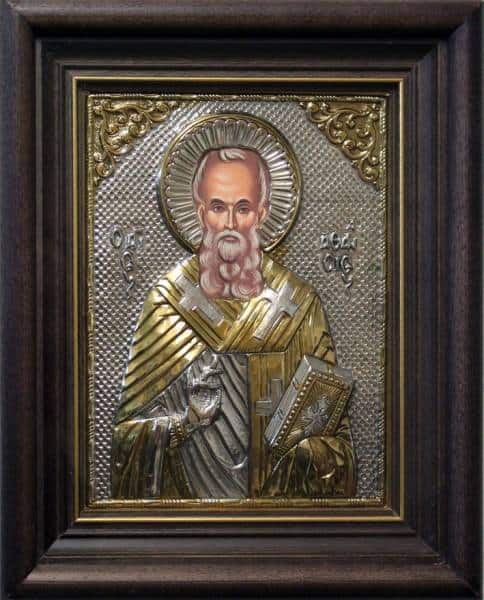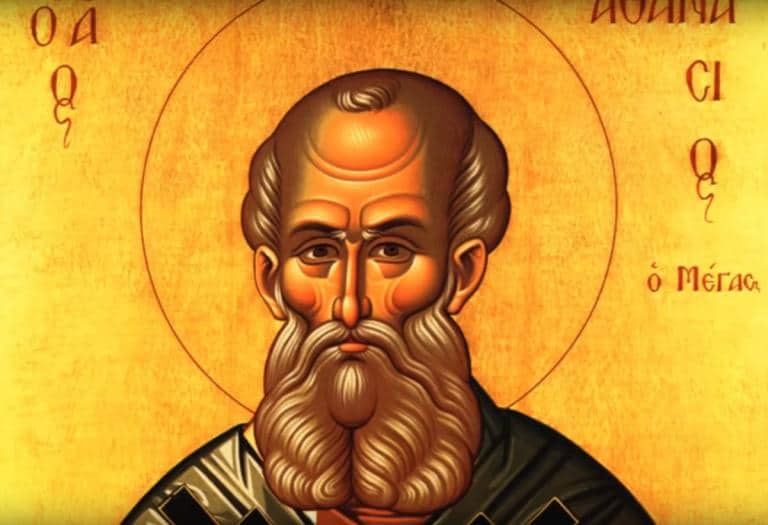On January 18, the Greek Orthodox Church celebrates the Feast Day of Agios Athanasios.

Agios Athanasios was born in Alexandria in 296, and from his early childhood, he was inclined to spiritual life. He was a deacon to Archbishop Alexander and accompanied him to the First Ecumenical Council (Nicaea, 325).
It was at this Council that Athanasius became renowned for his knowledge of, devotion to, and zeal for Orthodoxy. He contributed greatly to the destruction of the heresy of Arius and the strengthening of Orthodoxy. He wrote the Symbol of Faith (the Creed), which was adopted at the Council.
Following the death of Alexander, Athanasios was elected Archbishop of Alexandria.
He remained in his calling as Archbishop of Alexandria for forty years, although not for the entire time on the archiepiscopal throne. With few exceptions, he was persecuted by heretics throughout his life.
Of the emperors, he was persecuted the most by Constantius, Julian and Valens; of the bishops, by Eusebius of Nicomedia and many others; and of heretics in general, by Arius and his followers.

Athanasios was forced to hide from his persecutors at various times: once in a well, once in a grave, and sometimes in private homes or deserts.
Twice, he was forced to flee to Rome. Only for a while before his death did he live peacefully as a good shepherd among his good flock, who truly loved him.
Few are the saints who were so mercilessly slandered and so criminally persecuted as St. Athanasios.
His great soul patiently endured all for the love of Christ and, in the end, emerged victorious from this entire terrible and long-lasting struggle.
Athanasius often visited St. Anthony the Great, whom he respected as his spiritual father, for counsel, comfort, and moral support.
A man who formulated the greatest truth, Athanasius had much to suffer for that truth — until the Lord gave him repose in His Kingdom as His faithful servant in the year 373.

